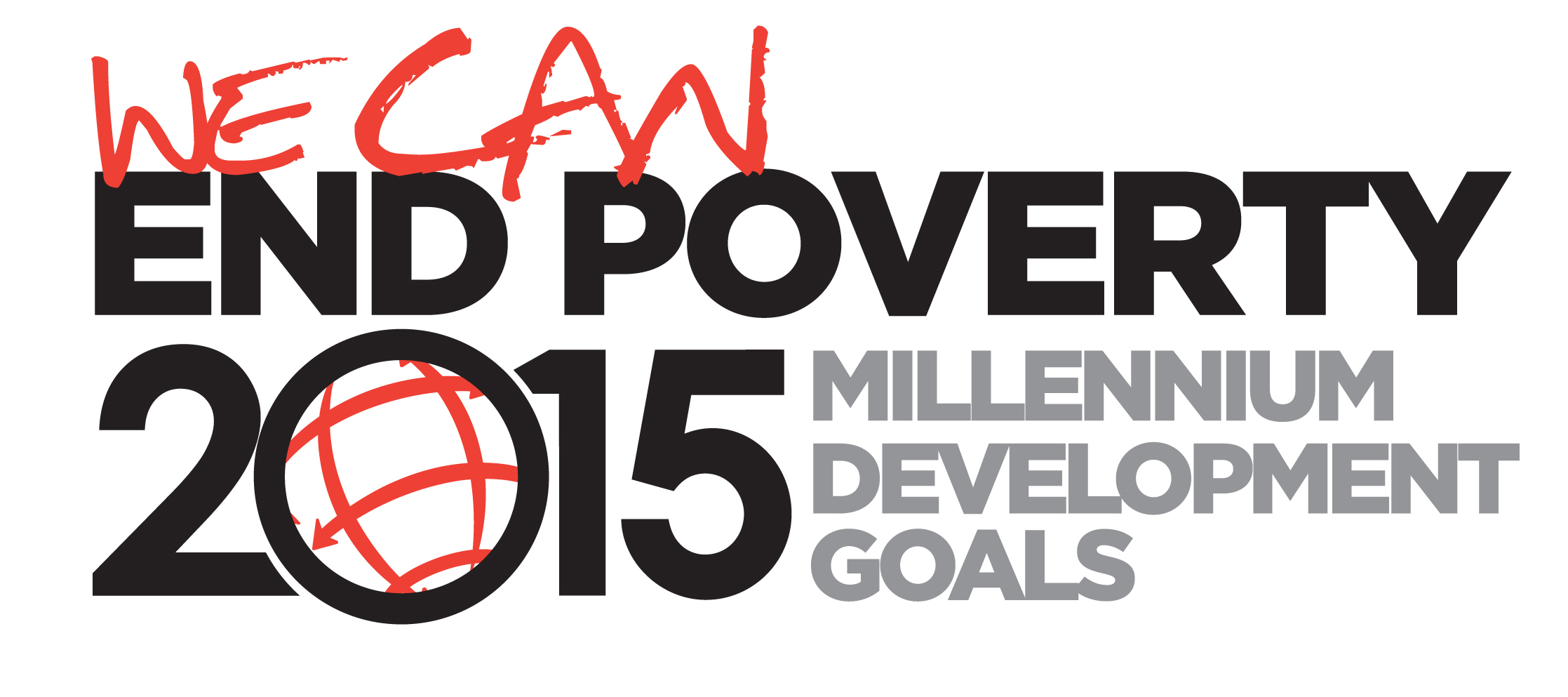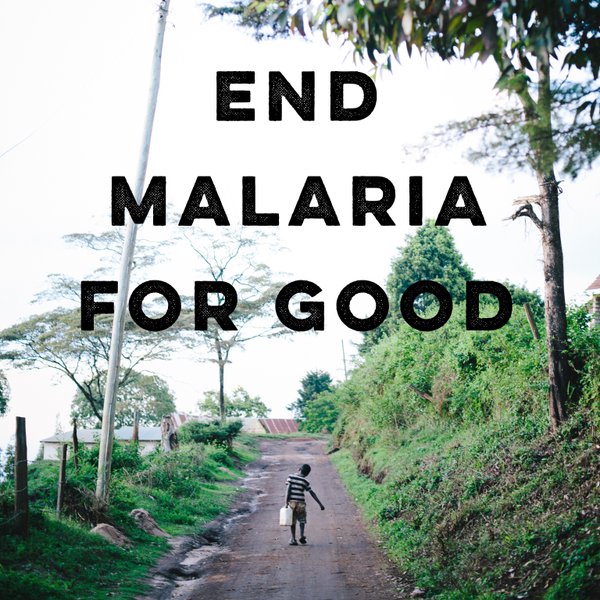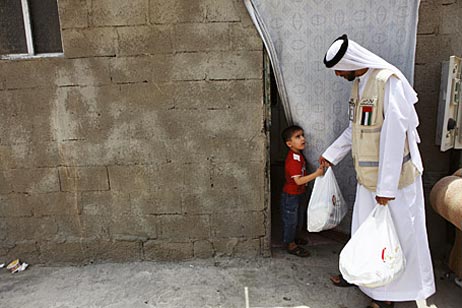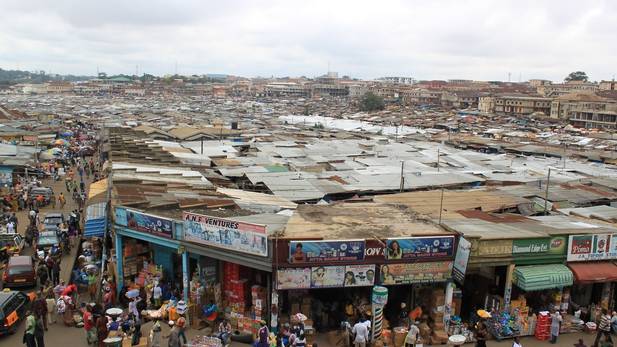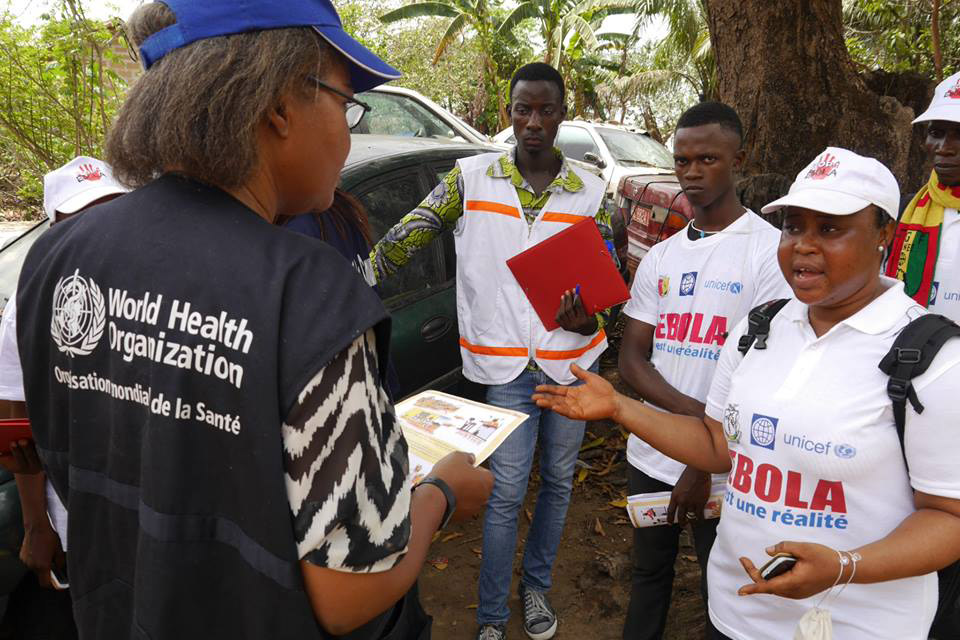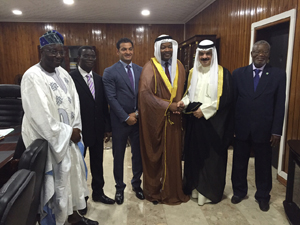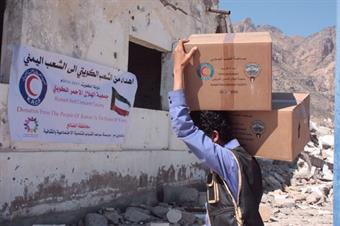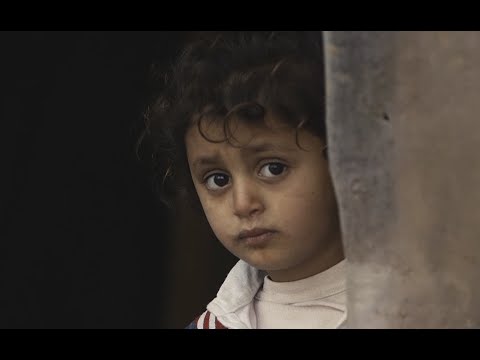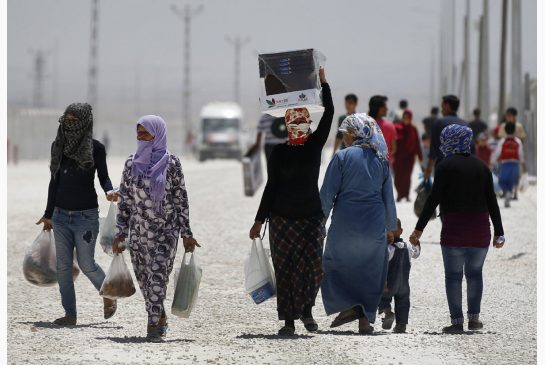Category Archives: Others
End Malaria For Good
Malaria is one of the leading causes of death and morbidity worldwide, especially in the developing world. Malaria is an infectious disease that, despite being preventable and treatable, threatens the lives of 3.2 billion people around the world. Every year the disease accounts for over 438,000 deaths, the majority of which are in sub-Saharan Africa where a child dies every minute from malaria. Pregnant women and children under five years of age are especially vulnerable – high maternal mortality, low birth weight and maternal anaemia are other consequences of this devastating disease.
In 2015, there were 96 countries that had some degree of malaria transmission. The toll on children under five has been especially devastating, accounting for 70 percent of all malaria deaths.
The majority of malaria victims worldwide are children under the age of five
Despite massive progress in fighting malaria in the past decade, the parasite that causes the disease has evolved and become more difficult to treat in some parts of Asia. Growing parasite resistance to artemisinin, the key ingredient of the most effective treatment currently available for malaria, poses a great challenge to malaria control. That is why it is imperative for Royal Group Charity to maintain high levels of funding to contain the spread of the resistant parasite to Africa where it could reverse the present downward trend and lead to large scale epidemics in populations no longer fully immune to the disease.
THE SOLUTION
Malaria imposes an enormous cost on already stretched public health services and economies, yet it is entirely preventable and treatable with a combination of available tools and sustained financing. A comprehensive approach to malaria control, that includes protective insecticide treated nets, indoor spraying with insecticide, preventive treatment for pregnant women, diagnostic tests, effective drugs, education, surveillance, research and advocacy, will successfully continue to reduce the burden of the disease and control its spread. Intensive efforts will potentially lead to the elimination and finally the eradication of the disease.
Spread the word
Help spread the word about Royal Group Charity and join the fight against malaria.
List of Great Donors in Arab Countries
February 22, 2016 By Royal Group
Donors in Arab Countries have long history as aid providers. Due to limited resources and knowledge, some regions are still under developed. Arab Donors provide support in various countries worldwide in order to foster understanding and consensus around regional and national development priorities.
Donors in Arab Region that provide aid in Arab countries and countries worldwide. Examples include:
Dubai Cares that works to improve children’s access to primary education in Developing Countries
The Abu Dhabi Fund for Development that is helping developing countries to achieve sustainable economic development.
The Arab Fund that works for economic and social development.
Islamic Development Bank to foster economic development and social growth of its member countries and Muslim communities.
Reducing Global Poverty by 50% Millennium Development Goal
Over 1.3 billion people in the world today are surviving on less than $1.25 a day. And many millions more struggle to overcome discrimination, violence, conflict and disasters. That’s why the fight against poverty and hunger is at the heart of Royal Group Charity’s action plan for international development. The action plan is met by our vision of a sustainable and just world, where people are empowered to overcome poverty and hunger and fully realize their rights and potential.
Inequality and marginalization are key drivers of poverty everywhere. People living in poverty are very often denied the rights and necessities we associate with human dignity.
These include access to nutritious food, to essential health and education services, to basic housing and shelter, to security and decent work.
The world has the resources to end poverty and hunger and ensure that people everywhere are empowered to live to their full pote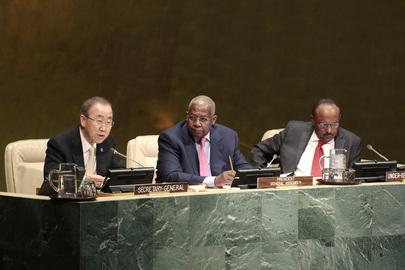 ntial.
ntial.
The good news is that worldwide poverty is reducing with the Millennium Development Goal of halving world poverty by 2015. However progress is uneven and increased efforts are now needed by the international community to find solutions to the many daunting challenges which remain.
These solutions need to be informed by an understanding of the many and often complex factors which drive people into poverty and prevent them from escaping the viscous cycle of poverty in a rapidly changing world.
Almost one billion people, or one in seven of the world’s population, are hungry today.
In developing countries, 3.5 million mothers and children die needlessly each year because undernutrition leaves them more vulnerable to infectious diseases.
More than 1.5 billion people live in countries experiencing fragility due to conflict or natural disasters.
More frequent and larger humanitarian disasters are affecting more people, with a fivefold increase in the incidence of natural disasters since the 1970s.
Environmental hazards such as pollution, severe weather events and climate change are threatening livelihoods and could drive millions more into extreme poverty over the coming years.
Widening Inequality, including gender inequality remains a big challenge and can lead to people being trapped in poverty across generations.
Across regions, women’s rights are being violated and they still have less access to productive resources and opportunities.
Population growth over the next 40 years will further strain environmental resources and put food production and security under pressure.
The population share of extreme poor in developing countries was projected to fall from 29% in 1990 to 12% in 2015. By 2004, the number of people living on less than a dollar a day had fallen to 985 million, equivalent to 18% of the population of the developing world. An estimated 135 million people were pulled out of extreme poverty in low-income countries between 1999 and 2004.
The Middle East and North Africa region were on track to reach the Millennium Development Goal’s poverty target of halving, by 2015, the number of people living on less than $1 a day. South Asia was also expected to meet the target before 2015, although high population growth has meant that the number of extremely poor people in South Asia has not greatly changed. East Asia and the Pacific has already met the target. Latin America and the Caribbean and Europe and Central Asia are in danger of not meeting the target. Africa is still way off track and unlikely to meet its target.
Progress in Africa has been better since the late 1990s with the share of the region’s people living in extreme poverty dropping 4.7 percentage points over five years to 41% in 2004. At the same time high population growth left the same absolute number of poor in 2004 as in 1999, at nearly 300 million. Globally, Africa now accounts for 30 percent of the world’s extreme poor, compared with 19 percent in 1990 and only 11 percent in 1981.
Eastern and Central Asia saw 42 million people move out of $2-a-day poverty—a measure more widely accepted to assess poverty in that cold climate—between 1999 and 2004, a near halving of the total. However, the number of people still in $2-a-day poverty is more than in 1990, prior to the collapse of many of those transition economies. Less than 1 percent of Europe and Central Asia’s population was living on under $1 a day in 2004, equivalent to 4.4 million people.
East and South Asia drove global growth and poverty reduction over the past 10 years and the trend continues. The extreme poverty rate for East Asia and the Pacific (including China) was 9 percent in 2004, while the rate for South Asia was 32 percent.
Rapid global growth in 2006 provides grounds for optimism about progress in advancing the Millennium Development Goals.
For low income countries, real per capita income growth in Africa and South Asia has been stronger in the period since 2000 than any time since the 1960s, and stronger in Europe and Central Asian countries than any time since transition. Average GDP per capita growth rates for low-income countries in 2006 was estimated to be 5.9 percent, following a pick up trend that started in the 1990s.
Middle income countries continued to grow at high rates—estimated at 6.2 percent in 2006—with China and Europe and Central Asian countries at even higher rates—9.1 and 10 percent respectively.
One factor behind this performance is strong macroeconomic policies, as evidenced through continued moderate inflation rates and improved fiscal policies in some low income countries. Reduced indebtedness relative to GDP, owing in part to debt forgiveness from donors, has also helped improve fiscal outlooks.
In low-income countries, preliminary estimates suggest that, on average, growth has clearly resulted in lower poverty incidence: for a sample of 19 low-income countries, 1 percent of GDP per capita growth was associated with a 1.3 percent fall in the rate of extreme poverty and a 0.9 percent fall in the $2-a-day poverty rate.
Defining wealth as including natural assets in addition to physical and human capital leads to concerns that current rates of depletion and degradation of natural resources may be undermining the sustainability of higher growth, particularly in developing countries. In Africa, for example, the net creation of wealth has been effectively zero over the last three decades, a period in which total population more than doubled.
Extreme poverty is increasingly concentrated in fragile states, defined as those with particularly weak institutions and poor policies. These states and territories are home to 9 percent of the population living in developing countries, but nearly 27 percent of the extreme poor. Addressing the problems specific to them is thus critical to achieving the Millennium Development Goal.
Moreover, the problems of fragile states face spill over to neighboring countries through conflict, refugee flows, organized crime, spread of epidemic disease, and barriers to trade and investment.
Conflicts are a major reason why countries slide into fragility, and they extract high costs in terms of lives and physical damage, but also reduce growth and increase poverty. While the number of conflicts in low-income countries has decreased, conflicts have become shorter and more intense than before, with an average negative impact on GDP growth of around a 12 percent decline per year of conflict.
Nevertheless there are models of success: Vietnam, Mozambique, and Uganda all experienced severe violent conflict but managed a cessation of hostilities, and, subsequently, enjoyed economic growth by the introduction of programs of managed, market-oriented reform.
Aid is particularly important in fragile states because it constitutes the main source of development finance. However, multilateral institutions account for only around 8 percent of total flows from developed countries, the rest coming from bilateral sources.
As we move towards the future, Royal Group Charity Foundation would continue to fight for the cause and support the international communities into ending poverty globally.
Spread the word
Help spread the word about Royal Group Charity on Millennium development’s goal to reduce poverty by half.
Ebola Free Declaration
Time to rebuild
Following todays declaration of the end to the deadliest Ebola outbreak ever by the World Health Organization.
Royal Group Charity Foundation will help Africa to get people back in business, improve healthcare and get children back to school.
Royal Group Charity has committed the Gulf Cooperation Council (GCC) to support Africa’s recovery over the next 2 years, of which a portion will be focused on building new schools and hospitals to help bring life back to the people.
Our ongoing support for Africa includes:
Help for over 2,000 Ebola survivors, who face ongoing health problems and potential stigmatization. as well as medical support and assistance for survivors.
Support for the long term recovery in Africa, including rebuilding the health system to improve sanitation and access to healthcare, as well as developing the education system to allow schools to reopen safely.
Royal Group Charity will also help medium sized businesses to start growth to create a bright future.
GCC progress in global fight against malaria
Today, the World Health Organization released the World Malaria Report 2015, which reflects historic progress in the global fight against malaria. Since 2000, the mortality rate among children under five fell by 65 percent worldwide and by 71 percent in Africa. I’m thrilled to see such tremendous progress against this deadly disease.
A lot of this progress can be attributed to life-saving bednets distributed across Africa. By 2014, more than half of the population was protected by nets, compared to less than two percent in 2000.
The United Nations Secretary-General Ban Ki-Moon recently declared that the UN’s targets to reverse the incidence of malaria by 2015¬ – as outlined under Millennium Development Goal 6 – have been met and surpassed. This is also reflected in the report. This gives us incredible momentum as we start 2016 and a new set of global goals to end this disease for good.
Our work is still far from complete. There were 438,000 deaths from malaria worldwide this year. Approximately 3.3 billion people are still at risk of malaria.
No child should die from a mosquito bite. Every child deserves the chance to lead a healthy life, which is why we must sustain the gains we’ve made and accelerate efforts to defeat malaria.
Since 2006, various charities have worked closely with its UN partners to deliver more than nine million nets to families across 30 African countries. With the help of more than 350,000 supporters, partners, and champions across the country and around the world who are raising awareness, funds, and voices to make an impact. Partners and supporters across the world are advocating for continued malaria funding for the Global Fund to Fight AIDS, Tuberculosis and Malaria and the President’s Malaria Initiative, so that they can continue their crucial work towards the fight against malaria.
This year, Royal Group Charity will announce The 100,000 Nets Pledge, our commitment to delivering over one hundred thousand life-saving nets to families displaced by conflict across Africa. We are already starting our goal, thanks to our valued partners and our goodwill motivation.
Supported by the GCC, Royal Group Charity foundation plans to supply more than ten million nets to Africa by 2017. Making the GCC the largest donor to fight malaria.
The majority of malaria victims worldwide are children under the age of five
We can’t stop now. Millions of children and their families are counting on us. Together, we can defeat malaria.
Spread the word
Help spread the word about the GCC and Royal Group Charity and join the global fight against malaria.
Kuwait Charity In Africa
KUWAIT, (KUNA) — Visiting a location for Kuwaiti charitable work in Benin in Africa, Kuwait’s ambassador to that country Faisal Al-Musaileem expressed his delight at Kuwait’s humanitarian assistance to the needy worldwide.
The visit was to the Al-Safwa center, which is affiliated with the Kuwaiti charity known as Direct Aid, said a statement issued by Kuwait’s embassy in Benin, a copy of which was obtained by KUNA.
The ambassador toured the center which boasts a dormitory for orphans, a school house, a mosque, a library, a clinic, and playgrounds.
He expressed gratitude to all Kuwaiti charities that extend a helping hand to the needy everywhere, especially children that need the basic necessities of life, such as housing, education, and medical care.
In a country in which nearly 20 per cent of the population are undernourished, life becomes a daily struggle for those who find themselves on the lowest rungs of the socioeconomic ladder. Benin remains one of the continent’s poorest nations: 72 per cent of its population live in poverty, struggling to make ends meet.
Besides HIV/AIDS, other pressing public health concerns include infectious diseases such as hepatitis A, typhoid fever, malaria and yellow fever. Thousands of people still die from diseases that could easily be treated in Western nations.
Poverty in Benin is predominantly a rural phenomenon: in rural areas, only 4 per cent have access to sanitation facilities. Access to drinking water is also scarce in the countryside, where 31 per cent have to use water from unimproved sources.
In 2010, Benin experienced one of the worst floods in the country’s history. Thousands of people were forced to leave their houses. Many schools and public buildings were either partially or completely destroyed and most crops were also ruined, worsening the food situation, which had already been critical before the floods.
Our Program Achievement Report (PAR) captures the accomplishments of the intensive effort the Kuwait Ministry of Education has undertaken. This multi-year, integrated modernization program addresses critical issues in Kuwait’s education system: curricular reform, the development of national assessment systems, improvement of school leadership, and creation of professional standards.
Gulf Cooperation Council (GCC) Assistance towards Poverty
The countries of the cooperation council for the GCC are working with vigor to implement the vision and directives of the majesties and highnesses, the leaders of the GCC member states. The highest goal is to achieve economic and social integration among the
member states. To realize this goal, the cooperation council seeks to promote integration among its members in different spheres so as to secure social and economic benefits as well as prosperity for its citizens. The council also strives to maximize benefits for its citizens, including the right to participate, freedom and social justice.
The GCC member states have been active participants in the development of Arab countries
and other regions. They have provided development assistance and funded programs and
projects in friendly countries, either bilaterally or through multilateral donor agencies and
institutions, including the International Fund for Agricultural Development (IFAD). These
programs and projects have promoted economic development and stimulated growth through
the funding and implementation of development activities, such as improving access to roads and schools, water and electricity services, and social development. Royal Group Charity stresses the fact that the GCC has contributed to alleviating poverty in developing countries. In particular, members of the cooperation council
have contributed generously to poverty alleviation programs in countries experiencing
economic decline, facing resource constraints or affected by wars or natural disasters.
Members of the GCC, are committed to providing aid and assistance to support
development programs, including but not limited to social and rural development, and
enabling the integration of low-income groups into the economy. Recent figures from the Arab
Monetary Fund indicate that countries of the council have provided US$116.8 billion in official
development assistance. This amount accounts for 94.3 per cent of the total contributions made
by the GCC during the period 1970-2004. In addition, GCC member states have contributed
significant resources bilaterally. These contributions are extended in a spirit of kinship and
solidarity and reflect the council’s member countries’ commitment to promoting growth,
improving the living conditions of all people and strengthening international cooperation.
The cooperation council and IFAD recognize the challenges that many developing countries
are facing, including the sharp decline in standards of living, increases in poverty rates, high
inflation and income disparities. These challenges have rekindled the GCC member states’
determination to come together and develop a common position to address these challenges.
It was indeed this unity of purpose that brought the member countries of the council to play a
leading role in the establishment of IFAD in 1977. The cooperation council believes deeply in
the noble development goals adopted by IFAD in its development programs and projects.
IFAD’s programs have contributed appreciably in the efforts to combat poverty and strengthen
development in developing countries. They were also instrumental in strengthening the
framework for cooperation between IFAD and the council, as represented in the memorandum
of understanding signed between IFAD and the council in 1989. This memorandum established
the institutional and legal framework for developing an effective mechanism to promote joint
initiatives and enhance development coordination between our two institutions for the benefit of
developing countries.
The GCC member states will continue to provide aid and development assistance. Their
commitment is underscored by their combined efforts with IFAD and other international
organizations to eliminate hunger and rural poverty through direct contributions to IFAD’s
resources and joint parallel financing of IFAD projects. We appreciate IFAD’s efforts to highlight
the information on the contributions of the GCC Member countries to international
development. We also greatly appreciate IFAD’s efforts throughout the years to ensure that its
development programs and activities help build capacities in Africa so as to meet the challenge of poverty and eliminate the suffering of millions of people by ensuring decent livelihoods in these countries, particularly in rural areas.
We look forward to strengthening our partnership and enhancing cooperation with IFAD.
By working together in a spirit of solidarity, we can contribute effectively to improving the
livelihoods and well-being of all people living in developing countries
KUWAIT CONTRIBUTIONS
Kuwait’s Emir Sheikh Sabah al-Ahmad al-Sabah opened the third Africa-Arab summit by pledging $1 billion (740 million euros) in low-interest loans and the same amount in investments to African states.
Arab and African leaders gathered for the two-day summit in Kuwait City to review steps to promote economic ties between the Arab world, which includes wealthy Gulf states, and investment-thirsty Africa.
“I ordered officials of the Kuwait Fund for Arab Economic Development to provide soft loans worth $1 billion to Africa over the next five years,” H.H Sheikh Al-Sabah announced.
H.H Sheikh Sabah also said Kuwait, in cooperation with the World Bank and other international institutions has decided “to provide investments and investment guarantees worth $1 billion” over the next years and this will focus on infrastructure projects.
The Kuwait Fund is the oil-rich Gulf state’s investment and aid arm in African, Asian and Arab countries. So far it has provided billions of dollars in low-interest loans for development and infrastructure projects.
Thirty-four heads of state, seven vice presidents and three heads of government are attending the third Africa-Arab summit, which brings together 71 countries and organizations.
The meeting is the first of its kind since 2010, when leaders met in Libya.
In his opening speech, His Highness Sheikh Sabah called for a focus on projects to achieve “food security” for the two regions.
But he also stressed that “it is no longer acceptable … that our countries continue to provide aid and that the other side does not participate.”
The leaders are expected to approve measures and resolutions adopted by foreign ministers on Sunday aimed at boosting economic cooperation between the two regions.
Kuwait’s Foreign Minister H. H Sheikh Sabah Khaled al-Sabah said the “Partners in Development and Investment” summit will discuss a proposal by the Africa-Arab Economic Forum to create an Arab-African common market for a combined population of around 1.2 billion people.
The leaders will also look at how to accelerate investment flows into Africa, which is facing an acute investment gap.
According to Royal Group, Africa needs around $33 billion a year to develop its energy sector.
The International Monetary Fund says African economic growth was a solid 5.0 percent in 2012 despite the world economic crisis. Growth is forecast to ease slightly at 4.8 percent this year and rebound to 5.1 percent in 2014.
In addition, Africa has 12 percent of global oil reserves and 42 percent of its gold deposits. The discovery of large quantities of natural gas off Africa’s east coasts has added to the continent’s economic potential.
On the other hand, the energy-rich Gulf Cooperation Council states have accumulated surpluses of $2.0 trillion thanks to persistently high oil prices. A majority of the assets are invested in the United States and Europe.
The prior summit held in Libya adopted an Africa-Arab Partnership Strategy and a 2011-2016 Joint Action Plan to increase investment, trade and other economic projects.
The leaders are expected to approve a resolution to set up an Africa-Arab Joint Financial Mechanism to provide the means for implementing projects and encouraging investment.
They will also discuss establishing an Africa-Arab Technical and Coordination Committee on Migration to help protect migrant worker
Refugee Warning Alert
Royal Group Charity Foundation is warning that adverse weather conditions across Europe are threatening to expose thousands of desperate refugees fleeing an escalating war in Syria and other conflicts.
The charity’s call comes ahead of a high level European Union summit on refugees in Malta last week, where the continent’s political leaders learned that record numbers of refugees have arrived in Europe over the past month in time for the advent of winter.
Many presumed the influx of refugees to Europe would start to slow with the arrival of winter, but there’s no evidence that the numbers are falling. In fact, we are seeing the opposite with the UNHCR’s anticipating as many as 5,000 arrivals to reach European shores each day between November 2015 and February 2016. Europe is facing a race against time and the elements. It’s clear that the harsh weather conditions are likely to exacerbate the suffering of the people traveling through the Balkans, and may result in further loss of life if adequate measures are not taken urgently at the very top level.
Tens of thousands of people including children find themselves trapped in the open as the skies darken and the first night frosts take hold. Across the Balkans, temperatures are tumbling to as low as -12°C at night in the makeshift camps where refugees are staying with no heating facilities. Hypothermia, pneumonia and opportunistic diseases are the main threats now, along with the growing desperation of refugees trying to save the lives of their families.
Shelter, food, winter clothing and blankets, as well as other essential items for protecting people from the elements are required urgently.
According to the UNHCR, up to a total of 600,000 are expected to arrive in Croatia, Greece, Serbia, Slovenia and Macedonia between November 2015 and February 2016. In previous years, migrant crossings of the Mediterranean Sea dropped significantly in the winter, as the harsher weather made the hazardous journey even more difficult. But a similar reduction is not expected this year.
An estimated 760,000 refugees have arrived in Europe this year along unofficial and dangerous land and sea routes, from Syria, Eritrea, Afghanistan, Iraq, North Africa, Nigeria and beyond. So far this year, more than 3,400 people have lost their lives or been reported missing as they seek to reach Europe.
Royal Group Charity is doing everything within its powers to accelerate the process by spreading this awareness to support families of loved ones in conflicted areas to help develop a solution of securing a better location that has more accessible facilities in place.
Best Charities Award 2015
This Best Charities captures the accomplishments of the intensive effort Charities have undertaken towards education in cooperation with Government organizations.
This multi-year, integrated modernization achievement addresses critical issues in Africa’s education system: curricular reform, the development of national assessment systems, improvement of school leadership, and creation of professional standards.
Backed by the highest honor bestowed by His Highness Prince Khalid Al-Sabah on a global citizen for an initial period of three years, these prominent personalities volunteer their time, talent and passion to raise awareness and improve the lives of millions of people everywhere.
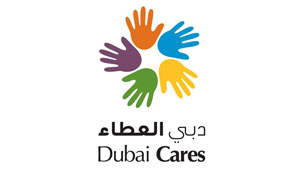
![]()

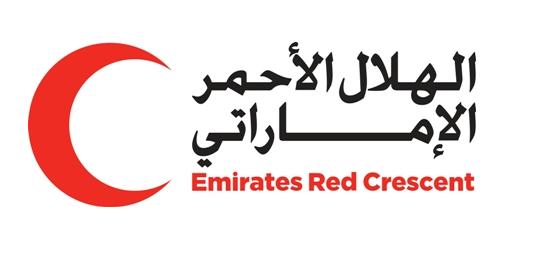
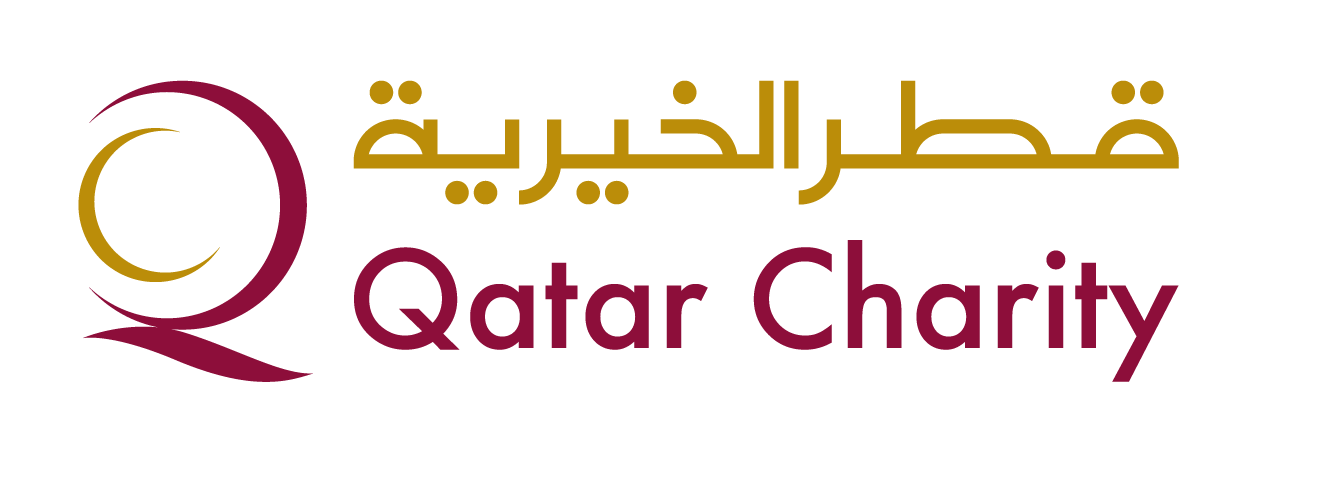
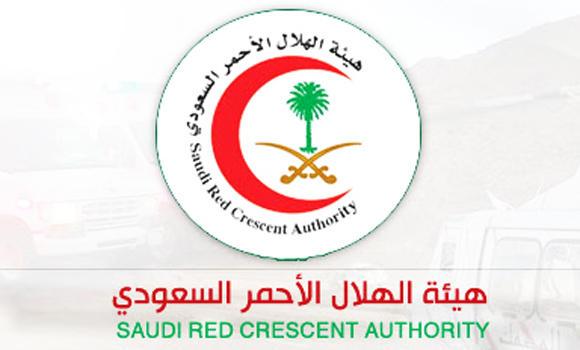
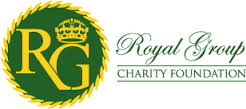
Royal Group Charity is excited to announce our 2015 list of best charities working against global poverty. Our top recommended charities do innovative and cost-effective work to bring food, vital nutrients, medical services, and economic opportunities to some of the 702 million people living in extreme poverty today. These organizations work tirelessly to level the playing field, using world class research and evidence-backed interventions to give new hope to some of the world’s neediest men, women, and children.
2015 has been a groundbreaking year for Royal Group Charity and for all of us who care deeply about poverty reduction. For the first time in human history, the percentage of the global population living in extreme poverty dropped below 10 percent. That’s great news, but there’s much more work to be done in 2016 and beyond as we work to wipe out extreme poverty.
From all of us at Royal Group Charity, we thank you for helping us move closer to realizing our vision of a world free of poverty and we look forward to having you join us at our next Best Charity Awards in 2018.
Spread the word
Help spread the word about Royal Group Charity and join the fight against extreme poverty.
Global Refugee Crisis UNTIL EVERY CHILD IS SAFE
UN humanitarian officials on Tuesday stressed the importance of Kuwait’s generous aid and donations in easing the suffering of Syrian refugees in different countries.
In separate interviews with Kuwait news Agency on tuesday, the two officials noted that the support of His Highness the Amir Sheikh Sabah Al-Ahmed Al Jaber Al-Sabah for the United Nation’s organizations and Jordan was of prominent effect on the living conditions for the Syrian refugees, mainly at Al-Zaatari camp northern Jordan.
The officials statement were made on the occasion of opening two schools at His Highness Amir Sheikh Sabah Al Ahmed Al Jaber Al-Sabah’s village, in Al Zaatari refugee camp.
They hoped that cooperation would continue between the UN High Commission and the UNICEF with Kuwait and the international Islamic Charitable Organization, which was in charge of opening the new schools with a capacity of over 2,400 students.
Kuwait’s efforts played a big role in providing refugees with proper education, in coordination with the Jordanian Ministry of Education, the High Commission, the UNICEF and the ICO, said UNHCR Zaatari camp manager Hovig Etyemezian.
Meanwhile, Etyemezian praised the efforts of the Jordanian government to facilitate the delivery of aid to refugees in the camp, create a safe work environment for the UN employees and safeguard the safety of all refugees.
On his part, UNICEF’s representative in Jordan Robert Jenkins, said that the continuous Kuwait contributions is creating a better life for the children of Syria refugees in the camp, adding that Kuwait has donated about 25.6 Million US Dollars for the UNICEF in Jordan.
The official noted that there are four other schools to be opened at the camp in cooperation with the US, the EU and Germany, to receive an estimated total of 25,000 children.
The camp’s schools do not have enough space to receive all children, as each class is filled with over 100 students, which in turn affects the performance of both students and teachers, said Jenkins. Thus, the UN is exerting great efforts to expand schools and develop educational services.
The two schools were inaugurated last saturday by President of the Kuwait based ICO. Amiri Diwan advisor and UN Secretary General’s humanitarian envoy Abdullah Al-Maatouq.
Kuwait plans to build other models villages for Syrian refugees in Jordan (with two villages already existing), each containing 1,000 makeshift houses in addition to public facilities including mosques, schools and medical centers.
There are currently over 1.3 million refugees living in Jordan, over 500,000 of them live in Al Zaatari camp.






